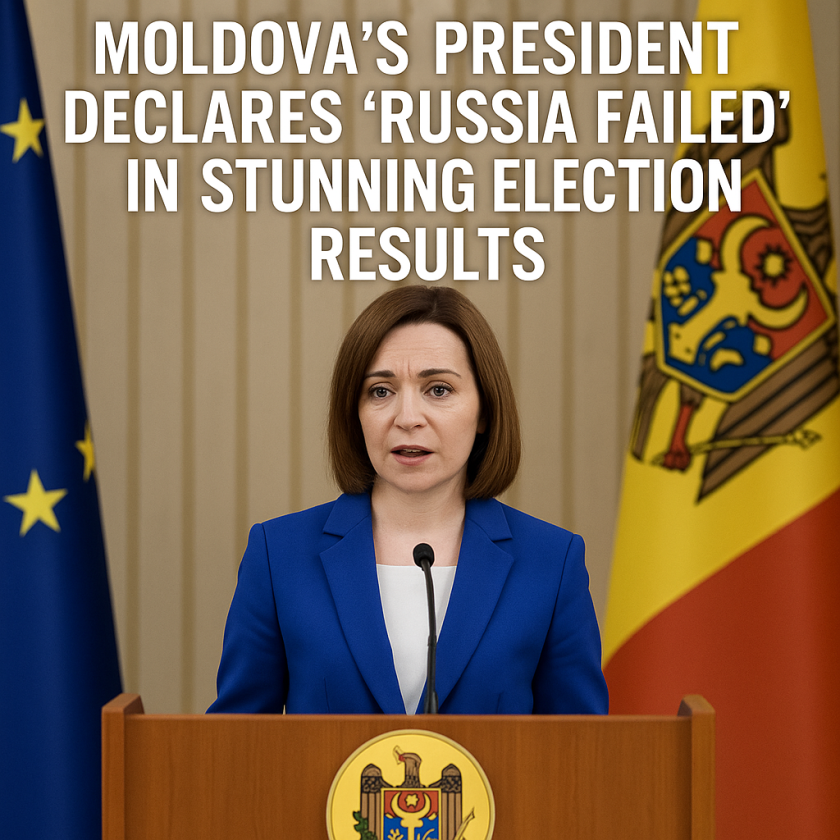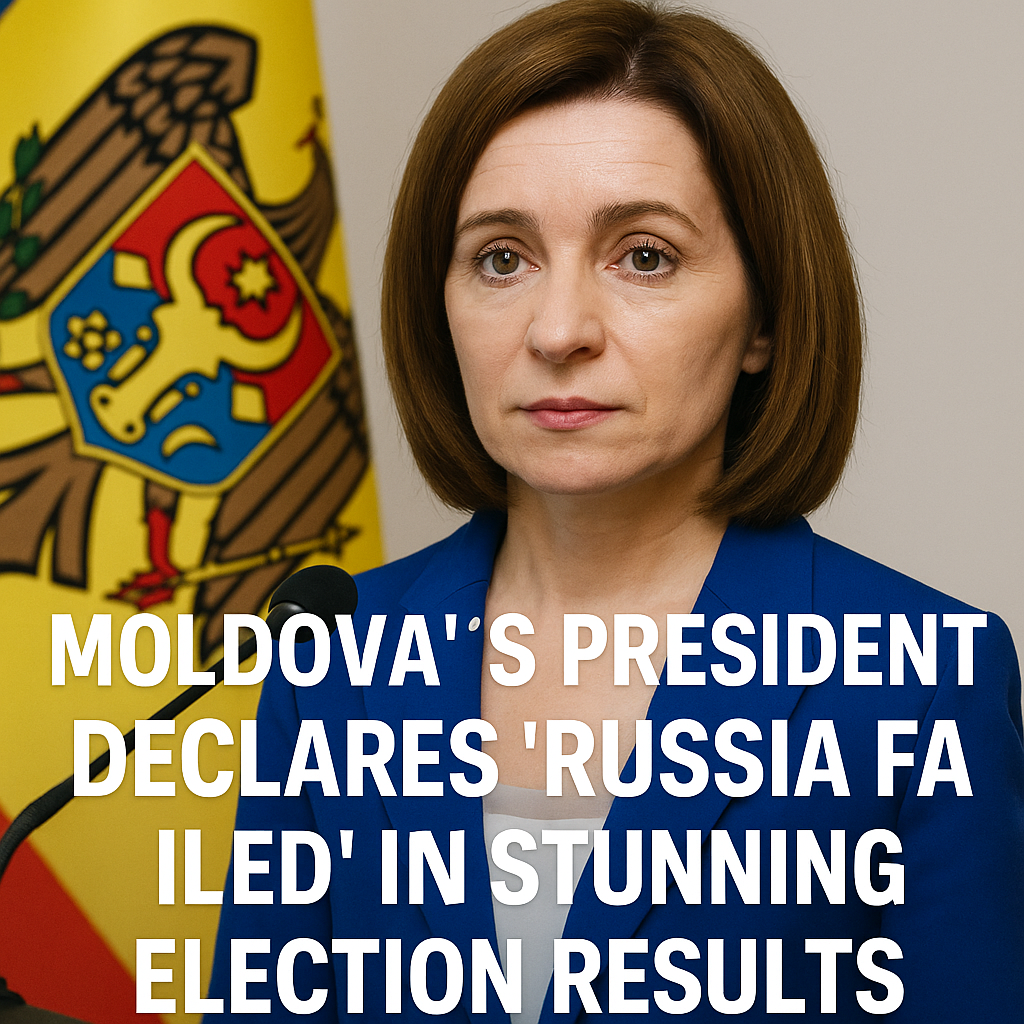Moldova’s President Declares ‘Russia Failed’ in Stunning Election Results
Moldova’s President Declares ‘Russia Failed’ in Stunning Election Results
Moldova’s recent elections have become a focal point for discussions surrounding regional geopolitics, especially regarding Russia’s influence in Eastern Europe. Following the elections, President Maia Sandu boldly stated that “Russia failed” in its attempts to destabilize the country. This assertion not only reflects the political climate in Moldova but also speaks to broader tensions between Moscow and its neighboring countries.
A Shift in Moldovan Politics

The results from the recent elections in Moldova appear to signal a significant political shift. According to Al Jazeera, Maia Sandu’s pro-European party won a substantial number of seats, reflecting a public appetite for deeper ties with the European Union rather than with Russia. This outcome might be seen as a rejection of pro-Russian sentiments that previously held influence within the country.
Notably, the election results also indicate a declining popularity of opposition parties, which have often advocated for closer ties with Moscow. Sandu’s administration has championed reforms aimed at combating corruption and enhancing the rule of law, resonating positively with voters. The president expressed hope that the results would fortify Moldova’s path toward European integration, a sentiment echoed by various political analysts.
The Geopolitical Context
Moldova’s geopolitical landscape is complicated, primarily due to its proximity to Ukraine and historical ties to Russia. To understand the significance of these election results, one must consider the ongoing tensions in the region. As reported by RT News, Russia has historically leveraged its influence in Moldova. There were claims that Moscow used various tactics, including economic pressure and media manipulation, to sway public opinion during the election.
However, the election results suggest that these strategies may not have had the intended effect. Support for Russian-aligned parties fell sharply, with many voters favoring a pro-European agenda instead. This shift is particularly important as it underscores an evolving national identity, where a majority of Moldovans are increasingly aligning with European values and governance.
Mixed Reactions and a Complex Future
While Sandu’s administration celebrates the electoral triumph, not everyone shares the same optimism. Critics argue that the rapid push toward Europe could exacerbate internal divisions. Some factions believe that a complete break from Russia could lead to economic instability, as Moldova has heavily depended on energy imports from Russia—something that has only intensified amid the global energy crisis.
Moreover, as Sky News reported, the Kremlin’s response to the election results has been one of condemnation, seeing them as a direct affront to its influence in the region. Russian officials have expressed concerns over Moldova’s future trajectory, claiming that the nation is compromising its neutrality in favor of Western alliances. This tension raises pressing questions about the potential for future instability or unrest fueled by external pressures and internal divisions.
Looking Ahead: Challenges and Opportunities
As Moldova stands at this pivotal crossroads, the road ahead is fraught with challenges but also filled with opportunities. The focus now intensifies on whether the incoming government can effectively manage the delicate balance between fostering European ties while addressing domestic concerns surrounding energy dependency and national unity.
Key Challenges Ahead
1. Energy Security: The government must work quickly to diversify its energy sources to reduce reliance on Russia.
2. Internal Cohesion: Maintaining political unity and addressing the needs of communities that favor pro-Russian ties will be pivotal for long-term stability.
3. Reforms and Governance: Implementing effective governance reforms will be essential to gain public trust and improve Ukraine’s EU integration prospects.
In conclusion, Moldova’s elections have illuminated a decisive shift in the public’s stance toward Russia and the European Union. With President Maia Sandu declaring “Russia failed,” the message is clear: the Moldovan populace is ready to embrace a new identity aligned with European values. However, as the nation transitions, the ability to navigate both external pressures and internal divisions will determine whether the momentum toward European integration can be sustained. The road ahead is undoubtedly complex, but it presents a critical juncture for Moldova in defining its future.






































